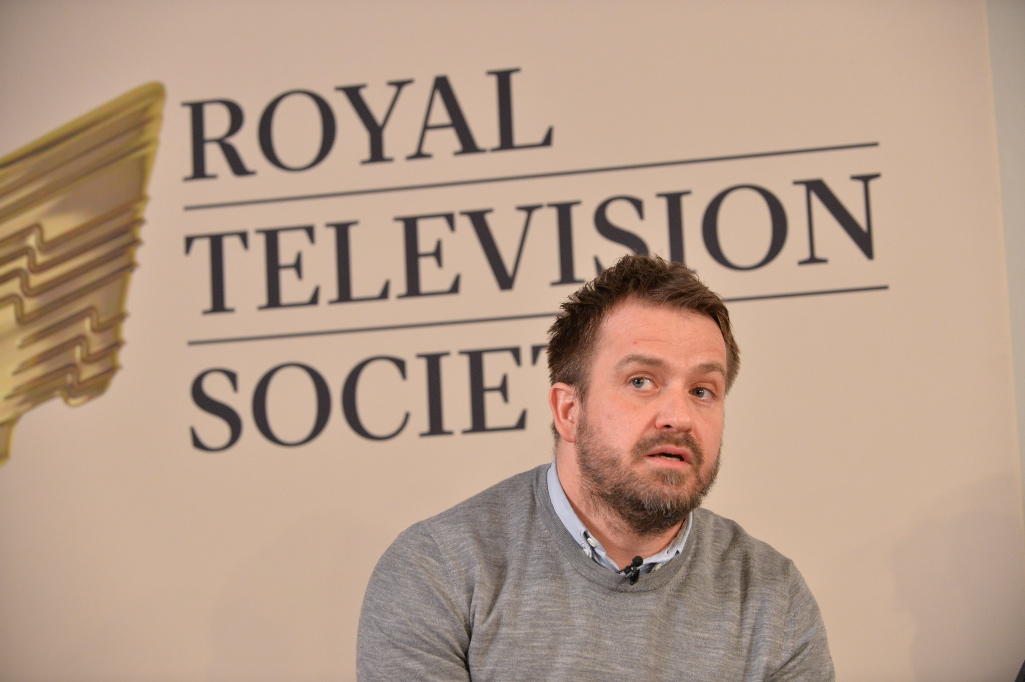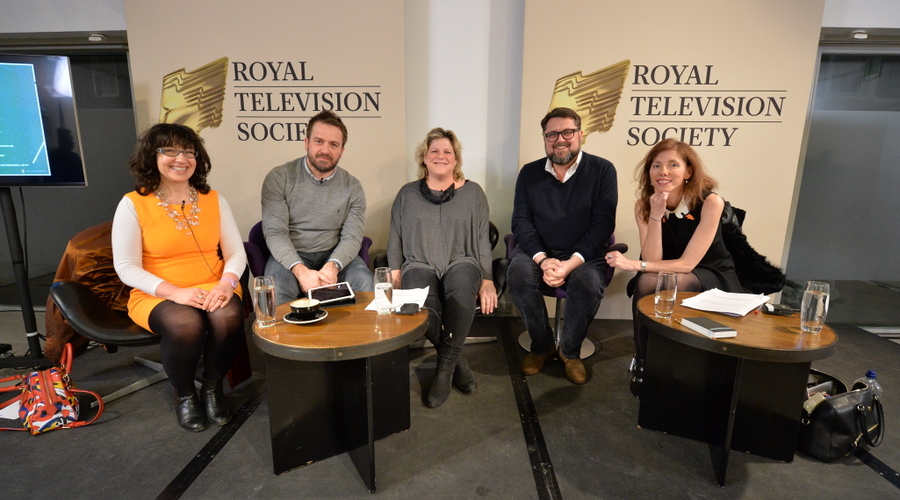A panel of experts discussed the future of ad-funded shows
"There is nothing new about advertisers making programmes," declared Campaign editor-in-chief, Claire Beale, at the start of an RTS early evening event looking at advertiser funded shows.
She then proved her point by playing two clips from around half a century ago, both from American TV.
The audience saw The Flintstones plugging cigarettes and Sixties Beatles clones, The Monkees, hyping a well-known breakfast cereal.
These days advertiser funded programmes (AFP) are a lot more subtle, especially in the UK, noted Beale, the event's chair.
Over the last decade or so AFP's fortunes have waxed and waned on British TV.
As Beale pointed out, continued fragmentation and the spread of online video are enticing brands to again turn to AFP in order to get their messages across.
One broadcaster that looks to be ahead of the curve in backing AFP is UKTV.
The company's Director of Commercial Partnerships, Sally Quick, revealed that 26% of UKTV's schedules across 11 channel brands were shows paid for directly by advertisers.
"We had 26 commissions last year and six of them were AFP," she said. "One was a co-pro with Waitrose."
Quick said she "sat within" UKTV's commissioning team. She explained there were three ways of getting AFP on air at UKTV.
"We take out ideas we want to commission which we think have got a commercial opportunity and look for co- funding partners," Quick explained.
"A good example of that was John Torode's Australia, co-funded by Tourism Australia via the media agency Drum. It was the highest rated show on Good Food last year.
"Other ideas we create from scratch. Brands come to us with a brief on a content idea.
 "The key thing is that it only works when you've got the commercial and creative teams aligned," says Jon Lewis
"The key thing is that it only works when you've got the commercial and creative teams aligned," says Jon Lewis
"We then come up with a concept and pitch it to producers and work it up to broadcast with the brand.
"An example of that was Find My Past for Yesterday funded by FindMyPast.com.
"Finally we take and hone and develop ideas that a brand has already invested in.
"We're now in an eight-year partnership with Red Bull. We started with Red Bull X Fighters.
"We added Red Bull Cliff Diving and now Red Bull Soapbox Race Live, all for Dave."
Channel 4 has taken a more softly, softly approach to AFP, explained Jon Lewis, Head of Digital and Partnership Innovation at the broadcaster.
"It's still a relatively nascent market at Channel 4...There's a real opportunity. The key thing is that it only works when you've got the commercial and creative teams aligned...
"It's important to identify areas in the schedule...Creating AFP in peak is challenging at the best of times, particularly at Channel 4 where you are constantly competing for big audiences."
As a result, the station has started to become "very specific" regarding where opportunities exist for AFP in the schedule.
Two recent successes were daytime shows, The Weekend Kitchen with Waitrose, and What's Cooking, a partnership with Sainsbury's.  "Good ideas are good ideas and they can come from anywhere," says John Nolan
"Good ideas are good ideas and they can come from anywhere," says John Nolan
"I've been doing this a long time," Lewis said. "We definitely went through a low period a couple of years ago when it was difficult for production companies to get stuff away with broadcasters...
"I think there has been a bit of a resurgence. It is about being clear and from the outset managing expectations."
He added: "This market is starting to come alive again, on linear, as well as digital."
John Nolan, Managing Director at All3Media's AFP production arm, Apollo20, is a veteran of making shows funded by advertisers.
He recalled the early days of AFP when ITV screened Jim's Inn, a so-called advertising magazine screened in the late Fifties and early Sixties.
"I think there is a cultural question here about brands and their involvement with content," Nolan said.
"The sort of AFP we saw earlier with The Flintstones and The Monkees would be unacceptable in a UK context.
"Today we ask if AFP is changing the nature of programmes. I don't think it is.
"Good ideas are good ideas and they can come from anywhere.
"Find My Past, which is made by an All3Media company (Lion Television) is a good idea. It doesn't change because it is funded by a brand."
Sue Unerman, Chief Strategy Officer, Mediacom UK, stressed her faith in the enduring power of television advertising.
She said: "We are big believers in TV advertising. TV advertising is not going to go away. We believe there is a role for content that sits alongside advertising.
Unerman added: "We don't want to make content that people aren't going to watch. Why would a business want to make content that people don't want to watch?"
Nevertheless, the Mediacom strategy chief concluded the debate by cautioning: "It is not as easy as it should be to do this."
No Longer Only Buying Eyeballs: Why Advertisers want to make Programmes was an RTS Early Evening Event held at the Hospital Club, London, February 24. The producers were Tom Frazer, Vice President, Strategy, Viacom, Kerry Parker, Head of Network Communications, UKTV, and Sue Unerman, Chief Strategy Officer, Mediacom UK. A full report will be published in the March edition of Television
By Steve Clarke

